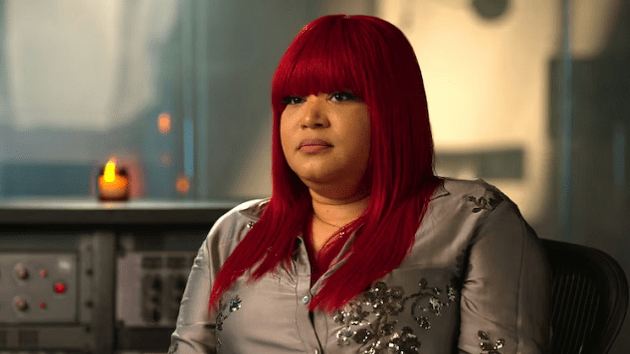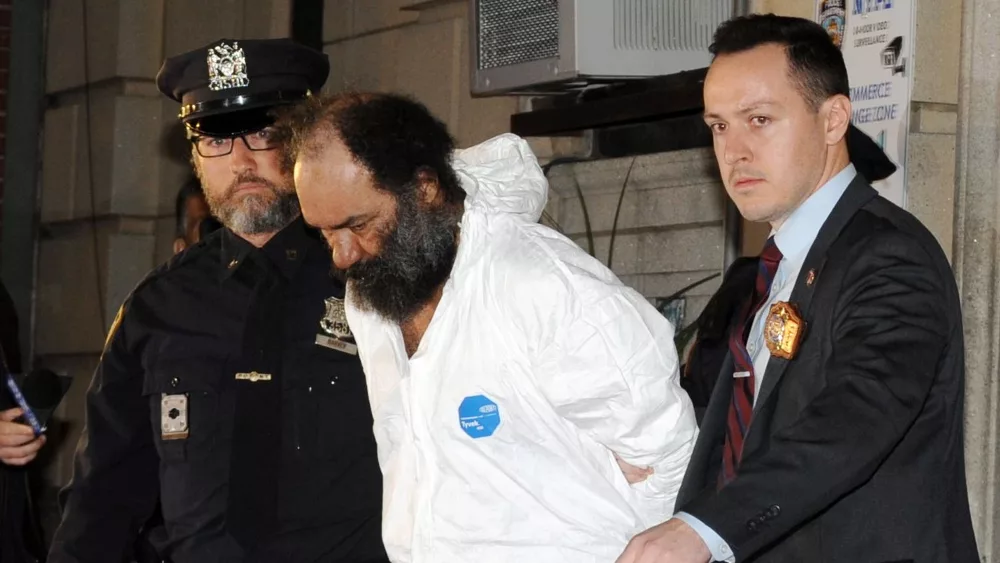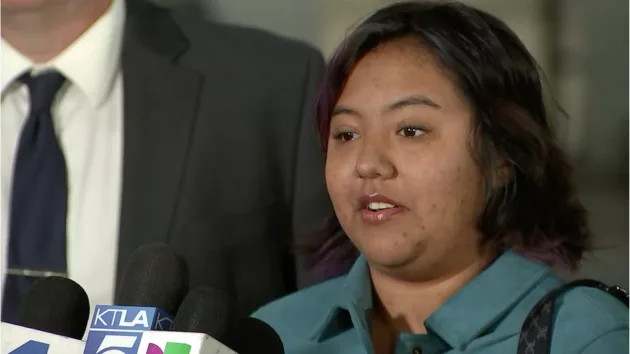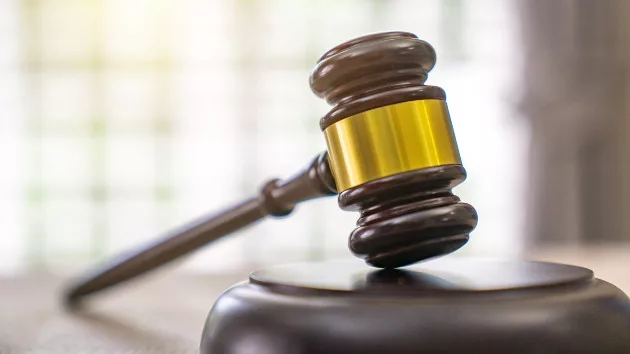(NEW YORK) — Long before the video surfaced showing Sean “Diddy” Combs assaulting singer and ex-girlfriend Casandra “Cassie” Ventura in a hotel hallway, that moment had been tormenting Grammy-winning songwriter Tiffany Red for years, according to Red.
“It was awful,” said Red, who wasn’t there when the assault happened. “That was around the time that I was writing for her,” she said.
Red was at the height of her career when she started writing songs for Ventura, previously working with musicians like Zendaya and Jason Derulo.
The musician and songwriter spoke to ABC News about what she describes as harrowing experiences working with music mogul Sean “Diddy” Combs, who is now embroiled in several lawsuits with serious allegations.
“These things have messed up my career and my world, too,” Red told “IMPACT x Nightline” in an episode titled “Diddy’s Downfall,” which is now streaming on Hulu.
Shortly after the release of that video by CNN, Sean Combs released a video statement saying, in part: “I hit rock bottom. I make no excuses. My behavior on that video is inexcusable. I take full responsibility for my actions in that video,” he said.
Red recounted the first conversation she had with Combs about writing music for Ventura.
“My first interaction with him was, he walked up to me, and he was like, ‘You’re the one writing all these songs about me.’ And I was like, ‘Yeah.’ He was like, ‘So, she’s talking to you, huh?’ and then, he just looked at me and then he walked away.”
Red said that after that first encounter, she felt intimidated by Combs and that it provided her with some insight into the allegations of the controlling and abusive behavior of the music mogul.
Combs denied all of the allegations. “I did not do any of the awful things being alleged. I will fight for my name, my family and for the truth,” Combs said in an Instagram post in December.
Born in Harlem, New York, Sean Combs was determined to be a big name in the music industry. He attended Howard University for two years, throwing large parties as a party promoter. His reputation quickly caught the eyes of celebrities and record labels. “Diddy has a somewhat unique trajectory, it didn’t take him a long time to become famous,” said culture critic Jamilah Lemieux.
After Howard, Combs was hired by his future mentor Andre Harrell, founder of the then-up-and-coming record label Uptown Records. Uptown is responsible for the early successes of musicians like Heavy D, Mary J. Blige and Christopher Wallace, popularly known as The Notorious B.I.G., or Biggie Smalls.
In 1993, Combs, known as “Puff Daddy” then, went on to start his own record label, Bad Boy Records and, along with Biggie, became part of one of the fiercest duos in the 1990s, rivaling West Coast’s Tupac Shakur and Suge Knight.
Tupac was killed in 1996, and just a few months later, Biggie was gunned down. Their murders would shine a spotlight on the so-called East Coast/West Coast rivalry of hip-hop.
To commemorate Biggie’s death, Combs released “I’ll Be Missing You” with singer Faith Evans. As he mourned the death of his collaborator and friend, the song catapulted Diddy to superstardom. “This was Puffy using it for, you know, an opportunity to not just promote his music, but promote Bad Boy,” says journalist and writer Justin Tinsley, author of “It Was All a Dream: Biggie and the World That Made Him.”
As his career reached newer heights, Combs’ love life also took center stage. He dated actress and singer Jennifer Lopez. The power couple infamously found themselves in legal trouble when, in 1999, they were arrested in connection with a nightclub shooting in New York City.
Former NYPD detective Derrick Parker told ABC News’ Byron Pitts, “There was a dispute between an individual inside the establishment. Shots were fired.” Shyne, who was a rapper signed to Bad Boy, ran out with a gun in his waist. Sean Combs and Jennifer Lopez “went about two blocks before they were apprehended,” said Parker.
Combs was charged with gun possession and for bribing his driver to take ownership of his weapon. He was later acquitted. Lopez was never charged.
Shyne was convicted of two counts of assault, reckless endangerment, and gun possession, and was sentenced to 10 years in prison. He served nearly 9 years and was released in 2009. Currently, Shyne is a high-ranking politician as the Leader of the Opposition in his native Belize.
After conquering the music world, Combs also tried his hand at fashion, business, television and spirits.
His Sean John clothing line, started in 1998, was the first fashion show to be televised live. Under the Sean John label, he released his first men’s cologne, Unforgivable, in 2006.
Combs’ best-known business venture started in 2007, with his partnership with French vodka brand Cîroc. He helped the struggling vodka brand go from 40,000 to 2 million cases sold, annually.
While Combs proved himself to be a successful businessman and marketer, his successes included a wave of serious lawsuits, stemming back to the 1990s.Combs’ first major run-in with the law traces back to a charity basketball game that he promoted at City College of New York in 1991.
The oversold and overpacked event took place at the college’s gymnasium, resulting in a stampede. The incident resulted in the deaths of nine people, 29 injured, and several lawsuits were settled years after the incident.
At the time, Combs’ lawyers argued that he was not responsible for security.
The stampede would be the onset of accusations, allegations and lawsuits over the next 30 years.
Kirk Burrowes, former president of Bad Boy Entertainment Inc., filed a civil suit against Combs in 2003, claiming that Combs, in 1996, threatened to assault him with a baseball bat unless he signed over his 25% stake in Bad Boy. The suit was eventually dismissed, with Combs calling the allegations against him “pure fantasy.”
In June 2015, Combs was arrested at the University of California, Los Angeles, and charged with suspicion of assault with a deadly weapon for allegedly swinging a kettlebell at his son’s football coach. Charges were later dropped. Combs called the altercation a “miscommunication.”
In May 2017, Cindy Rueda, Combs’ former chef, sued Combs for sexual harassment, emotional distress, and failure to pay overtime wages. In her lawsuit, Rueda claimed that she was frequently asked by Combs to serve him and his guests meals during or after engaging in sexual activity. Combs called the lawsuit “frivolous” and settled with Rueda in 2019.
Combs’ years of settled suits and dropped charges came to a head in November 2023, when his ex-girlfriend Cassie Ventura sued for physical abuse, sexual assault and sex trafficking.
Less than a day after filing, Ventura settled her suit against Combs for an undisclosed amount. Combs denied all wrongdoing, as his attorneys stated that the settlement was not an admission of guilt.
“We have decided to resolve this matter amicably. I wish Cassie and her family all the best. Love,” Combs said in a statement.
In addition to Ventura’s lawsuit, at least six other lawsuits have been filed with serious allegations ranging from drugging to sexual assault and sex trafficking.
Rodney “Lil Rod” Jones, a producer who worked with Combs on his latest studio album The Love Album: Off the Grid, alleges that he witnessed illicit drug use, sexual abuse and sex trafficking while living with Combs. Combs’ attorney Shawn Holley denied the allegations, calling Jones a liar and a “con man” looking for an “undeserved payday.”
Combs’ legal issues would only worsen with the raid of his Miami Beach and Los Angeles properties by Homeland Security agents in March. The bicoastal raids, sources told ABC News, were conducted as part of a human trafficking investigation. Combs’ lawyer called the raid a “gross overuse of military-level force”. Combs, who has not been charged, was not present at either location at the time of the raids.
Following her own experience in the music industry, and after witnessing what her friend went through, Red founded the nonprofit advocacy group, The 100 Percenters. The group “fiercely advocates for the rights of music creatives, with a particular focus on BIPOC and marginalized communities,” says Red, adding that they advocate for fair and safe business practices in the music industry.
Still reeling from her experiences in the music industry, Red says the problem extends beyond just Diddy’s sphere. She said toxicity and abuse are a systemic problem within the industry. “It’s devastating and I don’t want anybody else to go through it, you know?”
“Sean Combs was not made in a vacuum,” she said.
Combs’ attorney, in a statement to ABC News, said, “Mr. Combs cannot comment on settled litigation, will not comment on pending litigation, and cannot address every allegation picked up by the press from any source, no matter how unreliable.”
As for Ventura, she says that recovery is gradual. The singer took to Instagram to speak out about domestic violence and her mental health after a video of her being assaulted by Combs surfaced.
“It broke me down to someone I never thought I would become,” she said in a text post. “This healing journey is never ending, but this support means everything to me.”
ABC News’ Rachel Rosenbaum and Zoe Chevalier contributed to this report.
Copyright © 2024, ABC Audio. All rights reserved.






